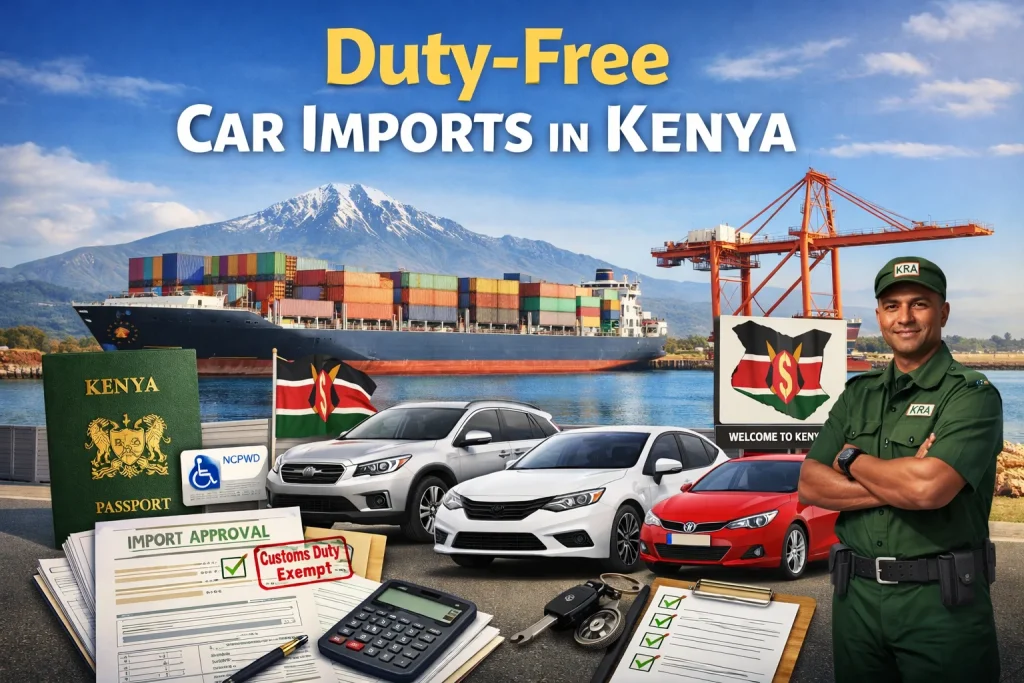In the age of convenience, buying a car online—from local sellers or international exporters—has become incredibly popular. But with that convenience comes increased risk. Online platforms are now a hunting ground for scammers targeting unsuspecting buyers.
From fake listings and phantom deposits to flood-damaged cars disguised as clean units, online car scams are alarmingly common. If you’re not careful, your dream car could turn into a costly nightmare.
This guide will help you spot the red flags, understand how these scams work, and share reliable methods to avoid being conned, especially if you’re a buyer in Kenya looking to import from Japan or other international markets.
Why Online Car Scams Are on the Rise
As more people shop for vehicles on websites, social media, or apps, fraudsters have become smarter and more persuasive. In Kenya, several buyers have fallen victim to:
- Non-existent cars sold through WhatsApp or Facebook
- Payments made to fake agents who disappear
- Imported cars with falsified documents
- Units involved in odometer rollback or accident repairs
With many buyers searching for “deals” or “quick imports,” scammers exploit urgency and lack of due diligence.
Top Online Car Scams Explained
Here are the most common types of online vehicle scams Kenyan buyers encounter:
1. Phantom Car Listings
This is the most common scam. The fraudster posts attractive car photos—often stolen from other sites—and offers them at below-market prices. Once you express interest, they ask for a deposit.
Red Flags:
- The seller is “out of the country”
- The price is too good to be true
- Urgency to make a deposit before inspection
Prevention Tip: Never send money before verifying the car’s location and the seller’s identity.
2. Odometer Rollback / Mileage Tampering
Sellers—especially shady importers—may reduce mileage to make the car seem newer or less used.
Red Flags:
- Odometer shows low mileage but interior wear tells otherwise
- No auction sheet or suspicious repair history
- Differences between dashboard mileage and vehicle logs
Prevention Tip: Request a translated auction sheet (for Japan imports) and check car history via CarVX.jp.
3. Salvage or Flood-Damaged Cars
Some vehicles imported from overseas may have been written off due to accidents or floods, then cleaned up and resold.
Red Flags:
- Foggy headlights, musty smells, rust in odd places
- Recently replaced interior parts in an older car
- Auction grade is “R”, “RA”, or “A”
Prevention Tip: Learn how to read auction sheets and always ask for pre-shipping photos.
See also: How to Spot a Flood-Damaged Car Before Buying
4. Payment to Fake Exporters or Agents
In this scam, you’re asked to make a payment to an “agent” who doesn’t work for any real company. Once you pay, they vanish.
Red Flags:
- No company website or unclear location
- Requests to pay via Western Union or personal mobile numbers
- Fake testimonials or stolen documents
Prevention Tip: Work only with verified importers like CarsKenya, who use secure bank transfers and issue official invoices.
5. Edited or Misleading Photos
Some sellers Photoshop dents, change backgrounds, or use filters to make a damaged car look brand new.
Red Flags:
- Overexposed, blurred, or low-resolution images
- No close-ups of interior, engine bay, or underbody
- Seller refuses to share more photos/videos
Prevention Tip: Ask for unedited walkthrough videos or live video calls.
How to Verify a Car Seller or Exporter
Before engaging any seller—especially online—follow these steps:
1. Request Company Details
Ask for:
- Physical address
- Website
- Registration documents
- Export license (if international)
2. Google Their Name
Search for the business and check:
- Google reviews
- Forums like Nairaland, Facebook groups, or KenyaTalk
- Any past scam alerts
3. Check Their Website
Legit companies will have:
- Company email (not Gmail/Yahoo)
- Active contact numbers
- Clear car listings with VINs, prices, and shipping info
- SSL-secured domain (https://)
4. Use Verification Tools
For Japanese car exporters:
- CarVX Japan for history checks
- JEVIC for inspection status
Safe Payment Methods When Buying Online
Avoid cash and untraceable payments. Stick to:
1. Secure Bank Transfers
Use verified company bank accounts. Confirm with your bank before sending.
2. Escrow Services
These hold your funds until the car is shipped or delivered.
Example: Some auction platforms or agents offer escrow as part of their service.
3. Mobile Payments with Receipt
Only acceptable for deposits if verified through a known Kenyan agent. Always ask for a company-stamped receipt.
Why Work with Trusted Importers Like CarsKenya
At CarsKenya, your safety comes first. Here’s what we offer to protect you from scams:
- Access to verified Japanese auctions
- Full auction sheet verification
- Video walkthroughs before purchase
- JEVIC-inspected units only
- Safe, secure payments via bank or Autochek financing
- Complete clearing, registration, and delivery to your location
WhatsApp/Call: +254 713 147 136
Visit: Bishop Magua Building, Ngong Road, Nairobi
Conclusion: Don’t Let Scammers Steal Your Dream
Buying a car online—whether locally or via import—can be easy and safe if you follow the right steps. Don’t let fake listings, shady agents, or “cheap deals” cost you your hard-earned money.
By staying alert and informed, you can confidently buy your next car without falling into the scam trap.
Always verify the seller
Check auction sheets and service history
Use secure payment channels
Work with trusted import agents like CarsKenya





